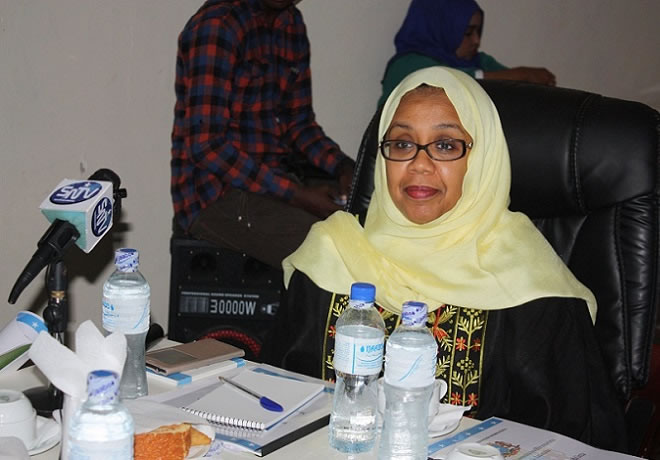Hiiraan Online
Monday, August 17, 2015

Somalia's Women Affairs & Human Rights minister, Sahra Ali Samatar
MOGADISHU (HOL) ----Somalia’s government plans to take a historic step by banning one of the country’s longest existing practices: FGM, a move campaigners say is hugely important which can help protecting women’s human rights – however, experts say the practice could end in a generation.
Thousands of girls undergo the FGM in Somalia every year; however UNICEF says there’s a widespread ignorance of the dangers of the ancient ritual, which can be fatal and can cause life-long health problems.
“The government is prepared to end FGM by issuing law prohibiting it.” She said at an event in Mogadishu on Monday.
She says her ministry proposed the draft law which is pending for cabinet endorsement for the prime minister to sign it into law.
Sheikh Nur Barud, the spokesman for Somalia’s Ulama Council who spoke at the event decried the practice which he says has no place in Islam.
“Anyone practicing it is punishable for the crime he/she has committed or can instead be fined.” He said of the FGM, and he warned parents to shun forcing their children to undergo the practice.
According to UNICEF, Female Genital Mutilation (FGM) has prevalence in Somalia. About 95 per cent is primarily performed on girls between the ages of four and 11. This traditional practice is embedded deep within Somali culture, and the belief is widely held that FGM is necessary to “cleanse” a girl child. In some communities, girls cannot be married without it.
UNICEF said the health consequences of FGM are both immediate and life-long. Research has shown that FGM adversely affects the physical, mental and psycho-social well being of Somali girls and women.
The agency urged a sensitive, long-term approach that ensures community ownership to achieve consensus about eradication of FGM in Somali communities, especially when being addressed within the context of religion (Islam)